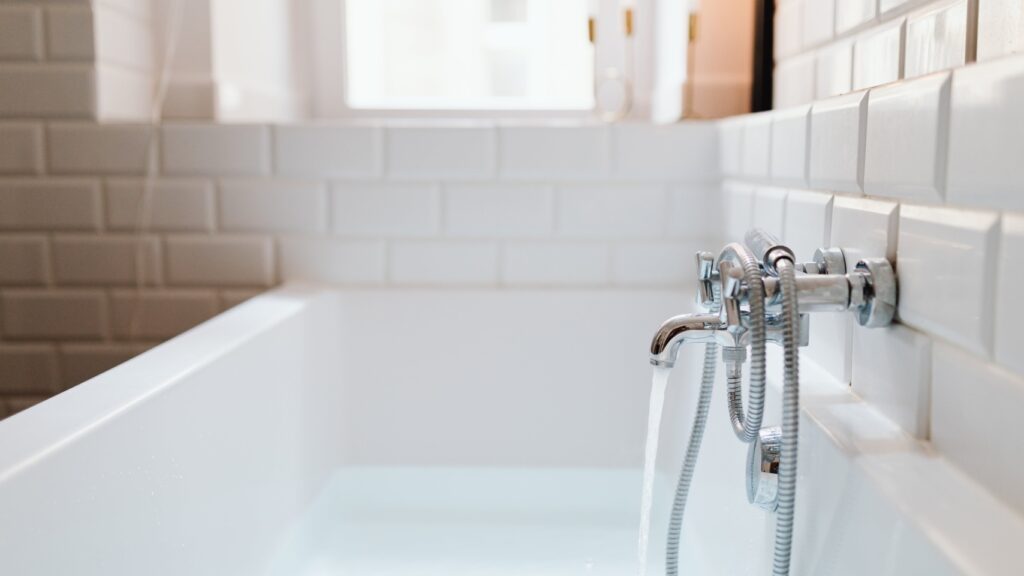7 Plumbing Truths Every Lexington Homeowner Should Know About
Owning a home is a huge milestone in anyone’s life, but it comes with its own set of responsibilities.
These responsibilities are heightened for Lexington residents due to the region’s unique water mineral content and changing weather conditions. These have a direct impact on household plumbing systems.
Regardless of the age or style of one’s home, understanding and maintaining its plumbing system is a must.

The following piece delves into some essential plumbing facts that every Lexington homeowner should be aware of.
Contents
Toggle1. DIY Isn’t Always Best:
While the do-it-yourself approach is fine for small-scale jobs like replacing a faucet washer or unclogging a sink, larger projects like repairing showers or planning a bath conversion require professional assistance.
One of the most difficult problems for DIY enthusiasts is dealing with the sophisticated plumbing systems in today’s homes. Errors in installation or repair can result in water leaks, pressure issues, or, in extreme circumstances, serious water damage.
Additionally, there are changes in water quality, local building laws and regulations, and environmental conditions that can affect plumbing operations.
Hiring professionals to do the job is the smart way to go about it. Just search for bathroom remodeling in Lexington near me to find contractors who understand the logistical, legal, and practical issues of major plumbing overhauls.
2. Take a Look at Your Plumbing and Pipes:
When buying a home, understanding the type of pipes used is just as important as understanding the type of roof or heating system it supports. The material of the piping has an impact on maintenance, longevity, and health requirements.
Homes built before the 1980s, for example, may still have iron or even lead pipes, which corrode and cause water contamination, leading to health problems. Safer materials, like copper, PVC, or PEX, are commonly used in modern homes. Each material has its own lifespan and maintenance requirements; copper lasts longer but may require soldering for repairs, while PVC and PEX are quicker to repair but may not be as durable.
Recognizing what you have empowers you to make informed decisions, whether you’re planning renovations, making repairs, or evaluating the general condition of your home.
3. Locate the Main Shut-off Valve:
In the case of a sudden plumbing disaster, the quickest solution is to turn off the water supply. This critical step can prevent your home from extensive water damage, especially in situations like burst pipes. For Lexington residents, this is a major concern because the utilities in the city are around 7% more costly than the national average.
Therefore, every homeowner should familiarize themselves with the location of the primary shut-off valve in their property. It’s usually found in low, concealed areas such as basements or crawl spaces, often along the exterior wall closest to the street.
Once located, ensure every member of the household knows where it is and how to operate it.
4. Keep an Eye On Your Water Pressure:
Although high water pressure feels great in the shower, it is not always good for your property. Just like too much stress may wear you out, too much pressure can cause your pipes to fail. Over time, this can lead to small leaks, which can grow into bigger, costlier problems.
To keep your pipes in top shape, it’s essential to make sure your home’s water pressure isn’t too high. A smart move is to invest in a pressure gauge. This device can be mounted to a sink or hose faucet, and it will display the home’s water pressure.
If the reading exceeds 80 psi, it indicates the pressure is too high for the home’s plumbing system, and you must install a pressure regulator. This not only secures pipes against damage but also conserves water, preventing the wastage associated with high pressure.
5. Chemical Drain Cleaners Aren’t Always Safe:
Drains get clogged all the time! And when they do, reaching for a chemical drain cleaner is a common response for many homeowners. It may seem like a quick fix, but these formulas can cause more harm than good. The harsh ingredients in chemical cleaners are designed to cut through whatever is clogging your drain, but that same aggressive action might damage your pipes. With frequent use, these chemicals may weaken lines, leading to leaks or pipe bursts that require costly repairs.
Besides, they’re not environmentally friendly. Rather than putting your plumbing and the environment at risk, opt for safer alternatives. A mix of baking soda and vinegar can often tackle blockages, and plungers can provide extra force for stubborn clogs.
For more persistent issues, it’s wise to call a plumber. They’ll address the root of the problem without compromising your pipes’ integrity.
6. Hard Water Challenges:
Hard water retains high levels of minerals like calcium and magnesium, which cause issues that might not be immediately obvious but are indeed problematic. Firstly, it reduces the efficiency of soap and detergents, leading to higher expenses as you would need to use more to get things clean. Washing with hard water can also leave clothes looking dull and skin feeling dry.
Furthermore, hard water can harm household appliances. The minerals build up inside coffee makers, washing machines, and water heaters, affecting their performance and shortening their lifespan. This buildup, known as scale, also happens in your pipes, reducing water flow and potentially causing blockages.
To manage these issues, many homeowners install water softeners to treat their water, reducing the mineral content and minimizing these adverse effects, ultimately resulting in savings and more efficient household running.
7. Insulate Pipes in Cold Weather
When the weather turns cold, it’s important to take steps to protect your home’s plumbing by insulating the pipes. While the weather is usually pleasant in Lexington, the city has experienced some devastating ice storms that have caused property damage in the past. Cold temperatures can cause water inside your lines to freeze, and when water freezes, it expands. This expansion can lead to pipes cracking or bursting, which can result in significant water damage to your home.
To avoid this chilly catastrophe, insulating your pipes is a straightforward solution. Pipe insulation is typically made of foam or fiberglass sleeves that fit snugly around your pipes. This insulation acts as a barrier, keeping the cold air away from the water inside the pipes.
You can find pipe insulation at most hardware stores, and it’s relatively easy to install. Just measure the length of the pipes you want to insulate, cut the insulation to size, and wrap it around the pipes. Make sure it’s tightly secured to provide the best protection.
Conclusion
By understanding these plumbing truths, homeowners in Lexington can maintain the integrity of their home’s plumbing system, prevent substantial damage, and save money in the long run. Make sure you take preventive measures and seek professional help when the situation calls for it. Your home will thank you in the long run.
Recommended For You
Water Saving Tips for Your Garden and Landscaping
Most Inside
Most Inside offers high-quality recommendations and valuable updates to enhance all aspects of your life, providing premium guidance and enriching experiences.




